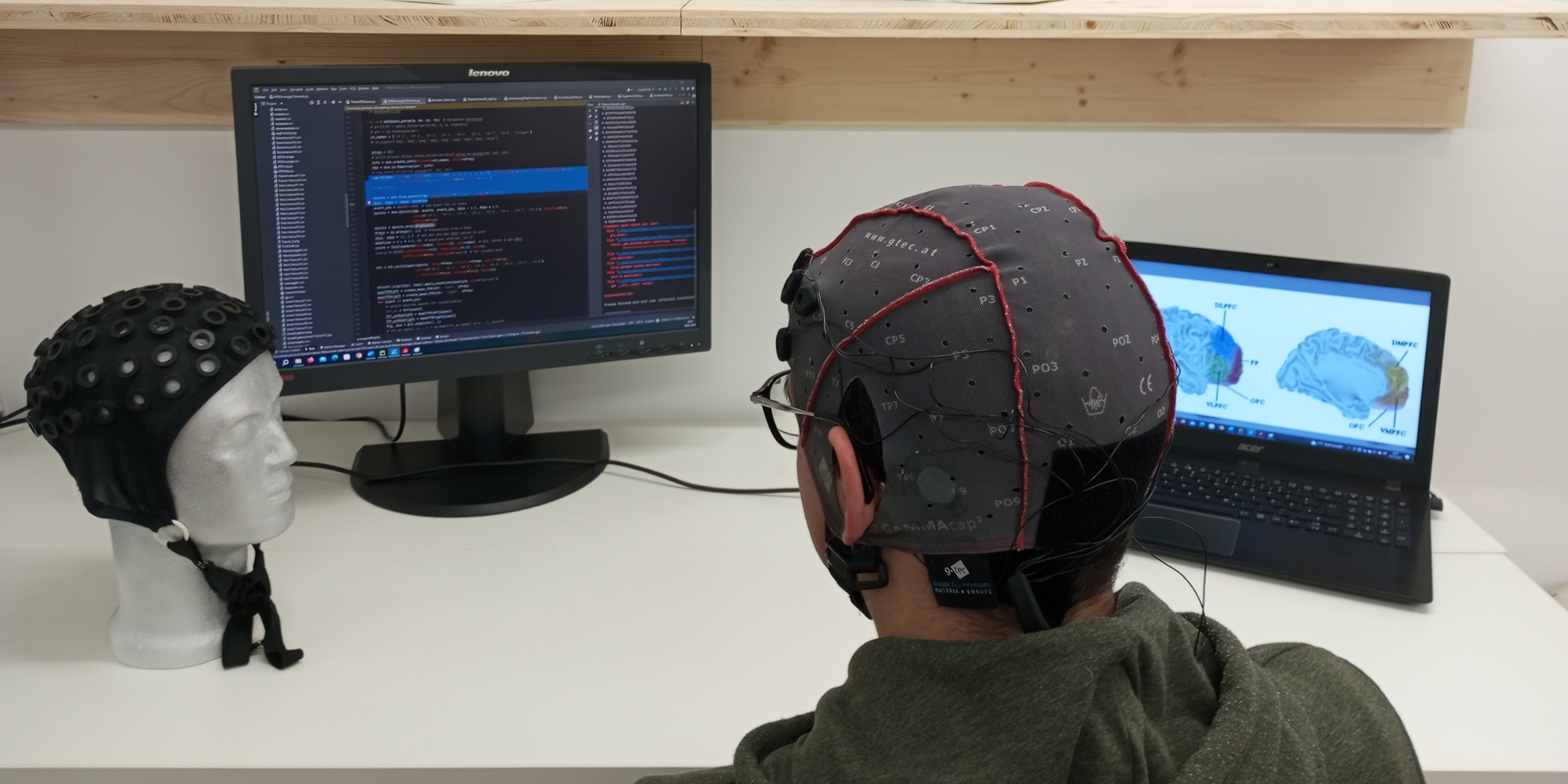From February 20 – 22, 2024, a team of researchers from Linz invites you to take part in a study in a temporary Neuro-Lab at the Ars Electronica Center Linz, which aims to make internal evaluation processes visible in the brain.

Duration: approx. 10-20 minutes
Participation: from 10 years
Registration: on site / no pre-registration required
free of charge
Can internal evaluation processes in the brain already be made visible? Evaluating something positively or negatively, approaching a situation or rejecting something from the outset are decisive aspects for the subsequent actions (often decisive for one’s own life). How can neurotechnologies take a look at the judgmental activities of the mind? Can media influences (visual literacy) directly affect our individual decisions?
A team of researchers from Linz invites you to explore these questions in the temporary Neuro-Lab at the Ars Electronica Center Linz from February 20 – 22, 2024. By participating in the current research study, you will have the opportunity to gain deep insights into your brain activity and observe your own neuronal responses live. Proven knowledge from brain research about the functions of the forebrain has existed for years, but never before has there been the opportunity to investigate this research question as an active participant in a museum laboratory. How is this possible? As soon as we see a picture, hear a song, smell the aroma of a dish or read a report in the daily newspaper, each perception triggers a firework of bioelectric signals in our brain. Just as in other technological fields, a lot has happened in the development of neurotechnologies. Measuring devices are becoming smaller and more precise. Accuracy, different levels of expertise and years of research have led to the development of a new EEG data analysis method (electroencephalography). This brainwave measurement system can provide real-time data analysis and visually display a snapshot of your individual assessment. Visitors are invited to become test subjects for this research project for approx. 20 minutes and receive an admission voucher as a thank you.
Further information Erika.Mondria@ars.electronica.art
Credits:
Science-Art-Research conception, development of research design, project management: PhD Researcher Erika Mondria, Visuelle Kommunikation, Interface Culture, Universität für künstlerische und industrielle Gestaltung, Linz.
Programming, implementation of neurotechnological paradigms, neurophysiological data collection: Andreas Wirth, Biomedical Mechatronics, Johannes Kepler Universität, Linz.
Scientific and technical advice: Dipl.-Ing. Dr. MBA. MSc Christoph Hintermüller, Biomedical Mechatronics, Johannes Kepler Universität, Linz.
